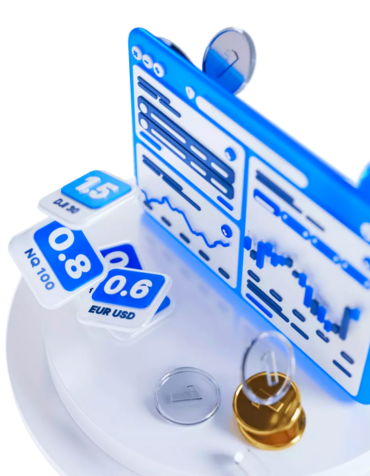We round up the best brokers that we believe offer best value for forex traders.





Trading the EURRSD forex pair involves buying or selling it in the foreign exchange (forex) market. Here are the basic steps to trade EURRSD:
To trade any forex pair, including EURRSD, you'll need to open an account with a reputable forex broker. Ensure that the broker offers access to this specific EURRSD pair.
Deposit funds into your forex trading account. The amount you deposit will determine the size of your trading positions.
Before making any trades, perform a thorough analysis of the EURRSD pair. This analysis typically involves fundamental analysis (economic data, interest rates, geopolitical events) and technical analysis (price charts, indicators) to determine your trading strategy.
Most brokers offer trading platforms that allow you to execute trades. Familiarize yourself with the platform's interface and tools.
Choose whether you want to buy (long) or sell (short) the EURRSD pair based on your analysis. Enter the trade order on your trading platform, specifying the amount (lot size) you wish to trade.
Executes the trade immediately at the current market price.
Sets a specific price at which you want your trade to be executed.
Sets a price at which your trade will be triggered if the market moves in a certain direction.
To manage risk, consider setting stop-loss orders to limit potential losses and take-profit orders to lock in profits at a certain price level.
Once your trade is executed, monitor the EURRSD pair's price movement. Keep an eye on news and events that may impact the exchange rate.
When you achieve your trading objectives, either manually close the trade or wait for your predetermined take-profit or stop-loss levels to be reached.
After closing your trade, assess the outcome. Review your trading strategy and learn from both successful and unsuccessful trades to improve your skills.
Always practice proper risk management. Never risk more than you can afford to lose, and consider using leverage cautiously if available.
One way to approach trading in EURRSD is by following trends. This means identifying the prevailing trend in the market and trading in line with it. Trends can last for a long time, so this strategy aims to take advantage of that. To implement this strategy, you need to analyze historical price data using technical indicators like moving averages or trend lines to identify the long-term trend. Once you have identified the trend, you can enter trades in the direction of that trend when shorter-term indicators align with it. To manage risk, set stop-loss orders below recent swing lows or key support levels. And if the trend continues, consider using trailing stops or take-profit orders to lock-in profits.
Another strategy is called breakout strategy. This strategy focuses on capturing significant price movements when a currency pair breaks out from a well-defined range or consolidation phase. First, you need to identify a range-bound market condition where EURRSD has been trading within a specific price range for some time. Then, use technical analysis tools like horizontal support/resistance lines or Bollinger Bands to monitor key support and resistance levels within that range. Once you have identified these levels, place entry orders above resistance (if bullish breakout) or below support (if bearish breakout). It's important to use proper risk management techniques by setting stop-loss orders near recent swing highs/lows inside the range and considering position sizing.
The third strategy is news trading strategy which takes advantage of short-term volatility caused by economic news releases related to Eurozone countries or Serbia that could impact EURRSD exchange rates. Make sure you stay updated on economic calendars, central bank decisions, GDP reports, inflation data etc., for both regions involved in this currency pair. Before major news releases, determine market expectations and potential impact on EURRSD exchange rates based on those expectations. If there is significant deviation between actual data and expectations after news release then utilize pending orders quickly enter trades after the news release. Manage risk by using stop-loss orders in case of adverse market reactions and consider taking profits swiftly by using take-profit orders or trailing stops.